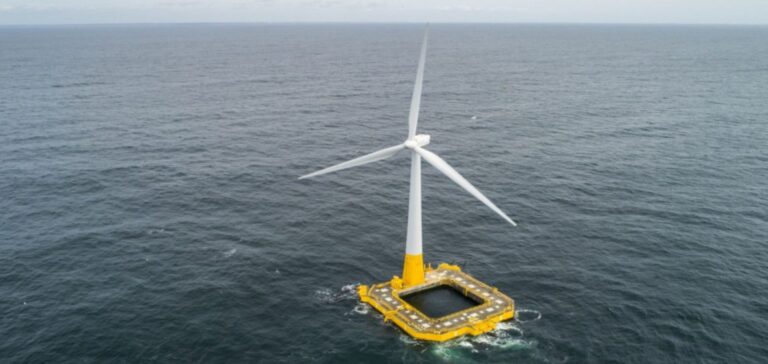Shell which, with two partners, was to install off Belle-Ile-en-Mer a pilot site of floating wind turbines, decided to give up, because of the rise of the costs and difficulties related to the suppliers, according to an information of the Echos, confirmed to the AFP by the oil group.
300 million project was led by a consortium of Shell, with the Caisse des Dépôts et Consignations (CDC) and the Chinese CGN.
It was to allow the testing of three floating wind turbines, a technology seen as the future of offshore wind energy because it allows the installation of wind farms at greater depths, and therefore further from the coast, than wind turbines riveted to the seabed.
Three other floating pilot farms have been announced in France, all in the Mediterranean. For example, the floats of the project planned off Port-St-Louis-du-Rhône (Bouches-du-Rhône) were unveiled on Monday.
But the Breton project has run into two obstacles: the withdrawal of the turbine manufacturer General Electric, which was to supply the 6 megawatt (MW) wind turbines but has refocused on the manufacture of equipment that is now more powerful, and then the manufacturer of floats Naval Group, which has sold its floating wind activity, writes Les Echos.
Combined with the generalized cost increase and the energy crisis, this made it impossible to build a sustainable business model, adds the article, which Shell has confirmed.
Shell had taken over the project in 2019 by buying the company Eolfi, ex-subsidiary of Veolia and pioneer of the floating wind.
France, which is due to inaugurate its very first wind farm (80 wind turbines on the seabed) opposite Saint-Nazaire in a few days, is counting on floating technology to be able to meet its ambitions: some 40 gigawatts (about 50 farms) by 2050.






















